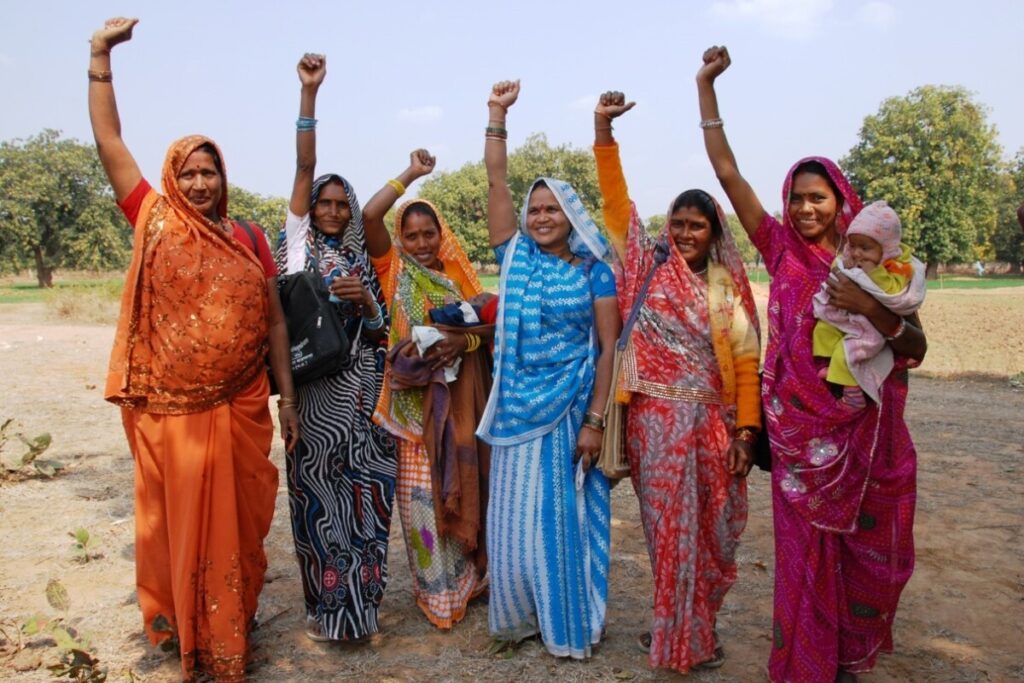Empowering women and promoting sustainable farming are pivotal for rural development. Women in rural areas often face significant challenges, including gender bias, limited access to education, and restricted opportunities. At the same time, sustainable farming practices are essential for environmental preservation and long-term agricultural productivity. Integrating women’s empowerment with sustainable farming not only addresses these issues but also
fosters economic growth, improves community health, and ensures environmental sustainability.
Rural women frequently encounter numerous obstacles that hinder their personal and economic growth. Gender bias remains a prevalent issue, limiting women’s access to education and professional opportunities. In many rural communities, traditional gender roles restrict women to household duties, preventing them from contributing to the economy in meaningful ways.
Empowering women can have profound impacts on rural communities. When women are given the tools and opportunities to succeed, they contribute significantly to economic growth. Empowered women invest in their families’ health and education, creating a positive ripple effect throughout the community. Studies have shown that women tend to reinvest a large portion of their income back into their families, promoting better health, nutrition, and educational outcomes for their children.
Sustainable farming is a holistic approach to agriculture that focuses on long-term productivity and environmental health. It involves practices that are environmentally friendly, economically viable, and socially responsible. Sustainable farming techniques include organic farming, water conservation practices, crop rotation, and the use of natural fertilizers and pesticides. These practices benefit the environment by reducing pollution, conserving water, improving soil health, and promoting biodiversity. For the community, sustainable farming ensures food security and creates resilient agricultural systems that can withstand climate change and other challenges. Additionally,sustainable farming can provide economic benefits by opening new markets for organic and eco-friendly products.

Empowering women in agriculture is a powerful strategy to enhance rural livelihoods. Women play a crucial role in farming, yet their contributions are often undervalued and underutilized. By providing women with access to resources, education, and training, we can unlock their potential to drive sustainable agricultural practices.
There are numerous success stories of women-led farming initiatives that have transformed communities. For instance, Ek Koshish, an NGO dedicated to rural development, has implemented projects that empower women through sustainable farming. These projects include training programs on organic farming, water conservation, and the use of renewable energy sources.
Education and training are critical components in empowering women farmers. By teaching women about sustainable farming techniques, we equip them with the knowledge and skills needed to improve their agricultural practices. Furthermore, education can help women gain confidence and leadership skills, enabling them to advocate for their rights and take on more prominent roles in their communities.
Supporting women and promoting sustainable farming are essential for rural development. Empowering women not only boosts economic growth but also enhances community health and education. Sustainable farming practices ensure environmental health and long-term agricultural productivity. Together, these strategies create a synergistic effect that drives rural development and improves the quality of life for all community members.
We must encourage and support initiatives that promote women empowerment and sustainable farming. Ek Koshish is trying its best to make significant strides in this area, but it needs your support to continue its vital work. By investing in these causes, we contribute to a brighter, more sustainable future for rural communities. Join us in supporting women and sustainable farming initiatives. Together, we can make a difference and create lasting change in rural areas.

